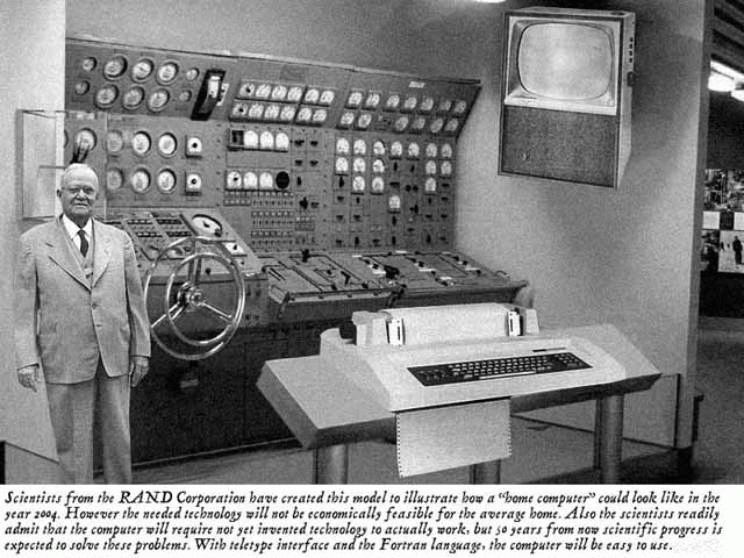An excellent article appearing in today's LA Times
Fed up over problems stemming from viruses and spyware, some computer users are giving up or curbing their use of the Web.
By Joseph Menn, Times Staff Writer
Stephen Seemayer had the first Pong video game system on his block. A decade later, the Echo Park artist was the first in his neighborhood to get a personal computer. And in 1996, he was so inspired by the World Wide Web that he created a series of small paintings for viewing over the Internet.
Now the 50-year-old Seemayer is once again on the cutting edge: Sick of spam clogging his in-box and spyware and viruses crashing his system, Seemayer yanked out his high-speed connection.
"I'm not going to pay for something that I can't use," he said.
A small but growing number of frustrated computer owners are coming to the same conclusion. They're giving up or cutting back their use of the Internet, especially at home, where no corporate tech support team will ride to their rescue.
Instead of making life easier - the essential promise of technologies since the steam engine - the home PC of late has made some users feel stupid, endangered or just hassled beyond reason.
Seemayer's machine, for instance, got so jammed with spam that he stopped checking e-mail. When he surfed the Web, pop-up ads from a piece of spyware he couldn't wipe out spewed sexually explicit images and used so much computing power that the PC would just stop.
"I could be sitting here in the living room reading a book," Seemayer said, "and I'd hear my son scream: 'It froze up on me again!' "
So when his son left for college in September, Seemayer finally unplugged.
Now when he uses his computer, it's to compose letters or organize photos - anything that doesn't require interaction with any other system.
Seemayer is still in the minority. Overall Internet use continues to grow.
But 2004 "was a real turning point in a bad direction," said technology analyst Ted Schadler of Forrester Research. "People are getting really angry. They're angry at Dell and Microsoft and their cable providers, and that's appropriate. They should be."
In a recent survey, 31% of online shoppers said they were buying less than before because of security issues. And though more people are signing up for high-speed, commerce-friendly connections, the proportion of U.S. Internet users paying for things online barely budged in 2004 from a year earlier. It rose to 27% from 26% in 2003 after jumping from 20% the previous year, according to Harris Interactive.
For many, spyware was the last straw. During the last 18 months, the sneaky programs have soared to the top of the list of tech woes, triggering the most tech support calls to Dell Inc., the nation's top PC maker. Spyware lurks on as many as 80% of computers nationwide, according to the National Cyber Security Alliance, a trade group.
Spyware generally transmits innormation to third parties and sometimes takes control of a PC, usually to display ads. The most pernicious varieties have instructed millions of computers to make expensive toll calls or logged every keystroke on affected machines and sent account numbers and passwords to identity thieves.
No one is immune. Microsoft Corp. Chairman Bill Gates discovered spyware on his personal machine not long ago.
The aggravation level has reached the point that some in the computer industry believe it threatens to undermine advances of the last decade, during which the Internet has grown from a virtually empty domain to a global community of 800 million souls. They say they need to act before the same early adopters who led mainstream Americans online lead them off.
"If, as an industry, we're not able to provide a safe, reliable computing environment, we do think consumers will get increasingly frustrated," said Michael George, general manager of Dell's U.S. consumer business. "We're concerned, and we want to get to a position where we play an instrumental role in fixing the problem."
It may well be up to private enterprise. Congress and the Federal Trade Commission are exploring a crackdown on spyware, but government efforts to stop another online scourge, spam, have had limited results, as many with an e-mail account will attest.
The root cause of the problems is the open architecture of the Internet, initially inhabited and managed by a collaborative community from government and universities.
"The Internet . grew out of a shielded, nice-guy environment in academia," Web usability expert Jakob Nielsen said. Back then, "the worst abuse might have been sending a prank message. Nowadays, the Net reaches everyone in the industrialized world, including large amounts of people with no shame and large numbers of criminals."
Microsoft's dominant Windows operating system also makes it possible for malicious code to spread, in part because it was designed to allow so many functions. Once a weakness in Windows is discovered by hackers, a virus can wreak havoc on millions of computers before Microsoft can offer a patch - which typical users may not take the initiative to download.
And consumer advocates claim that state and federal laws against spam don't help. Courts have protected software vendors from most consumer lawsuits, and some have held that the companies are all but immunized by warnings buried in lengthy user agreements, those boxes with massive amounts of text with the "I agree" button at the bottom.
Whatever the reasons, the threats have evolved from minor annoyances to serious computer risks.
Gerald Stark, 52, trained on computers in school and in the Navy before starting a small cleaning business in Lisbon Falls, Maine. He figured he could use the Internet to find equipment at a good price, track his sales and organize his volunteer activities with the Boy Scouts.
"I thought that the computer was the way to go because it was so much faster," he said. "It turned out to be a nightmare."
A virus killed one machine. Then spyware infested the next one, wiping out a year's worth of receipt records.
Stark read five years' worth of computer magazines just to keep up with how to defend himself.
Even with two firewalls and antivirus and anti-spyware programs running, Stark stopped looking for new business deals online. He said he would buy only from places he had dealt with before, preferably in the physical world rather than the virtual one.
"I'm not letting my guard down again," Stark said. "Never."
Henry Stiegel didn't think he needed his guard up in the first place. Pressed by his stockbroker and friends, Stiegel got his first home computer in 2003.
"I thought it was going to be like a television set - I'm going to sit right in front of it all day and have some control and learn things, scan for airfare and travel," the normer Grumman Aerospace Corp. engineer said from Homosassa, Fla.
Even after studying in computing classes, the 77-year-old Stiegel was swamped by hundreds of viruses, other malicious programs and pop-ups.
"I still have windows I can't delete when I want to get rid of them. When I send an e-mail, I get interrupted and have to start all over," Stiegel said. "I have actually pulled the plug out of the wall so I could reboot."
Stiegel now turns the computer on only two or three times a week, mostly to read his e-mail.
In Grand Rapids, Mich., homemaker Peggy Kasul sits halfway between the anxious newcomers like Stiegel and the jaded old pros like Seemayer.
A computer owner for seven years, Kasul did a little shopping online. Her husband used the machine to help manage some rental property, and her 16-year-old daughter wrote term papers for school.
Then her daughter went on the Internet to research a paper on the issue of breast-feeding in public. As if she had typed in a magic word, spyware ads for porn sites popped up and wouldn't go away.
Soon the computer was unusable. It took more than three weeks and $300 to get the thing working again, by which time all the family's data had been wiped out.
Now Kasul sends her daughter to use the computers at school or the library.
"I don't do much shopping online anymore because that scares me," Kasul said. "I go to the store."
The biggest factor behind the rapid increase in spyware is the amount of money at stake. Ads for such blue-chip companies as Motorola Inc., Verizon Communications Inc. and JP Morgan Chase & Co. appear in spyware programs.
The businesses most often accused of distributing spyware, including privately held Claria Corp., WhenU Inc. and 180Solutions Inc., say they are providing legitimate "adware" services to customers who approved the installation. But their disclosures are often misleading or buried: A recent Claria license ran for more than 60 electronic pages, first mentioning the phrase "pop-up" on page 18.
Much spyware arrives bundled with programs such as screensavers and file-sharing software.
"The part that worries me most is the tremendous amount of money that can be made by tricking people into installing junk on their computers," said Ben Edelman, a Harvard graduate student who has testified against spyware companies. "It's a great business."
The defenses remain scattered. Windows PCs often don't come with antivirus software installed. Firewalls and spam blockers are usually separate too, and there are dozens of small companies offering what they describe as anti-spyware products - some of which are actually fronts that install spyware.
"Staying safe online has gotten too complicated for the average user to do by buying individual products and making them work together," America Online spokesman Andrew Weinstein said.
Realizing that such fragmentation is making matters worse, some companies are rounding up the pieces of a more complete resistance.
Microsoft recently bought both an antivirus company and an anti-spyware software maker. Time Warner's latest version of AOL checks for spyware and offers to delete it. And where Dell's online guide for configuring a PC used to suggest a combined antivirus and firewall program without saying why, it now explicitly warns buyers to protect themselves or face potentially costly problems in the future.
Legislation that would have required more direct warnings by spyware companies to consumers and ensured that users could delete the programs made headway in the last session of Congress, despite objections from top computer-security company Symantec Corp. and other software providers. Ari Schwartz, an anti-spyware lobbyist with the Washington-based Center for Democracy and Technology, put the odds of some legislation passing in 2005 at better than 80%.
The FTC last fall filed its first case against spyware companies accused of using a security flaw in Internet Explorer to cram system-glutting programs into the machines of website visitors. The companies named were Seismic Entertainment Productions Inc. and SmartBot.net Inc. But current fraud laws allow regulators only to recover ill-gotten gains - no matter how much damage the bad guys have inflicted.
Enacting new federal bills "would be helpful," said Lydia Parnes, acting director of the FTC's Bureau of Consumer Protection. Spyware "needs to be understandable to consumers, and it needs to be presented in a way that's kind of visible to them."
Even if a strong law passes, Parnes said she didn't know whether the average computer user would be any better off in three years.
If it's worse, Seemayer probably won't be the only one on his block with a PC cut off from the Internet.
"It's great for anything you can do on your own," he said. "It seems to me an incredible typewriter - and that's it."








